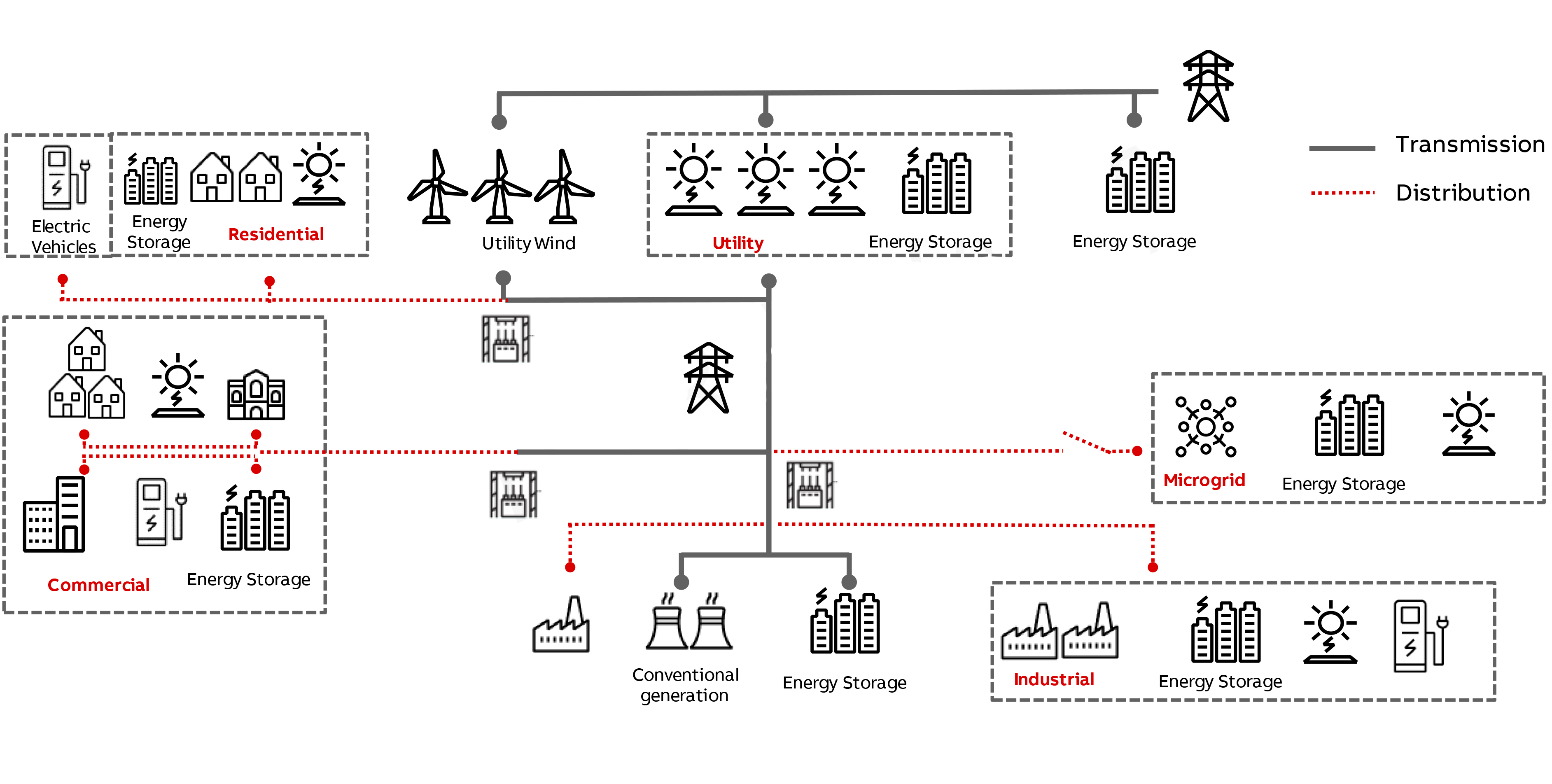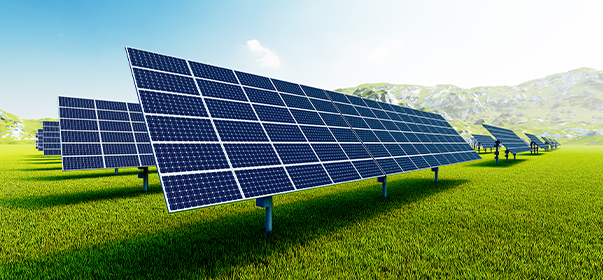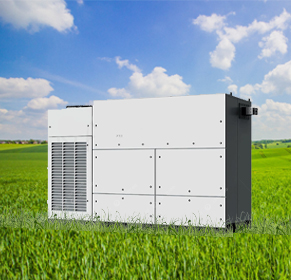
EnergyStorageSystems
The Role of Energy Storage Systems in the Grid

Arbitrage
It is based on the principle of buying electricity during low-cost periods and selling it during high-cost periods. Recent regulations permit this sales model.
Microgrid Network
These are low voltage (LV) or medium voltage (MV) scale energy grids that continue to generate their own electricity and supply critical loads even during power outages. All your sources and loads are coordinated to work seamlessly, including your existing generator and (or by adding an ESS) energy storage systems.


Ancillary Services
ESS systems integrated with production that comply with the Ancillary Services Regulation can participate in primary or secondary frequency support services and generate revenue through this market.
ESS + Solar/Wind
By adding energy storage systems (ESS) to existing or newly established renewable energy power plants (GES/RES), the grid impacts of these sources can be reduced. Energy that is lost due to grid constraints can be stored and recovered, enhancing overall efficiency and grid stability.
Load Shifting
It can be used to balance the load profile by placing it in areas of the network where instantaneous overload occurs.
Improving Power Quality
Includes feeding reactive power, frequency and voltage regulation, reducing instantaneous and local overloads, harmonic elimination, etc.

